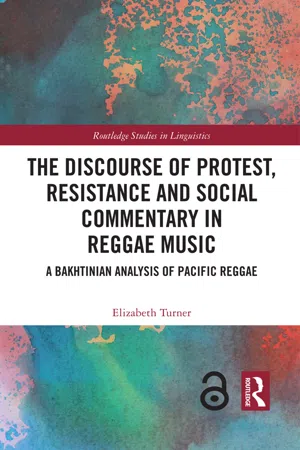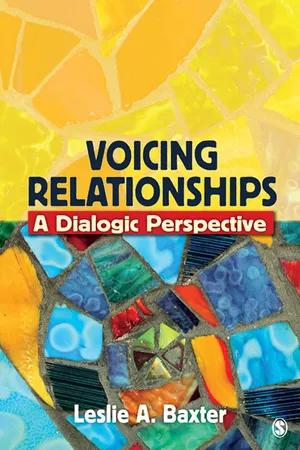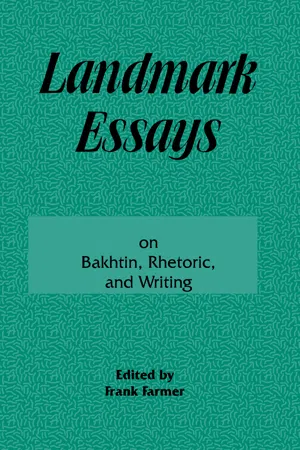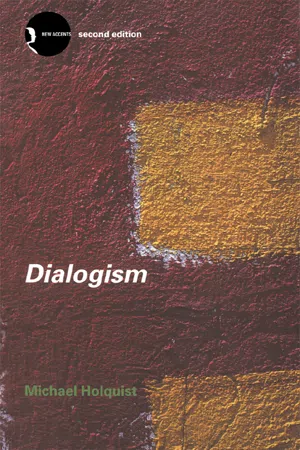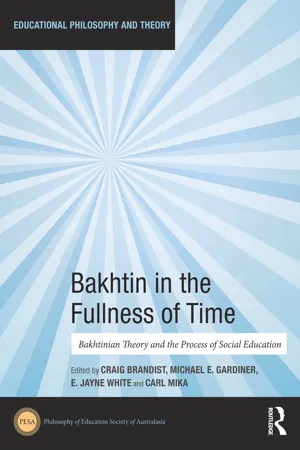Mikhail Bakhtin
Mikhail Bakhtin was a Russian literary theorist known for his work on dialogism and the concept of the "carnivalesque" in literature. He emphasized the importance of polyphony and the interaction of multiple voices in literary texts, as well as the subversion of traditional hierarchies through humor and parody. Bakhtin's ideas have had a significant impact on literary criticism and cultural studies.
7 Key excerpts on "Mikhail Bakhtin"
- eBook - ePub
Theory in Social and Cultural Anthropology
An Encyclopedia
- R. Jon McGee, Richard L. Warms(Authors)
- 2013(Publication Date)
- SAGE Publications, Inc(Publisher)
...Though some have credited the works published under Voloshinov’s name to Bakhtin as the sole author, it now appears that the influence may have been mutual. In contrast to the structural linguistics of the time, as exemplified by the writings of Ferdinand de Saussure, Bakhtin and his colleagues maintained that language was first and foremost a product of social interaction. This sense of language was often lost when studying formal features such as phonology or syntax in isolation, following the model of examining the records of dead languages (like Latin) with no living speakers. In looking closely at the social foundations of language, Bakhtin identified a short list of major philosophical principles that are now standard in the social sciences and humanities, including dialogism, voice, heteroglossia, ideology, speech genres, the utterance, polyphony, double-voiced discourse, intertextuality, the chronotope, and the carnival. The Dialogic Principle (or Dialogism) A central image that recurs throughout Bakhtin’s work is that of the simple act of engaging in face-to-face dialogue. Throughout his vast corpus of theoretical writings, this fundamental human context of communication was never far from view—an image that appears even in one of his first essays, “The Author as Hero in Aesthetic Activity,” originally written in the 1920s. By starting with this basic image of the face-to-face encounter, Bakhtin was able to confront the profound asymmetry of communication, given that each person in an exchange inherently sees things from a very different point of view, literally seeing what is behind the other person’s head or, more generally, what the other person may not even begin to see because it is beyond his or her direct experience...
- eBook - ePub
The Discourse of Protest, Resistance and Social Commentary in Reggae Music
A Bakhtinian Analysis of Pacific Reggae
- Elizabeth Turner(Author)
- 2021(Publication Date)
- Routledge(Publisher)
...3 Mikhail Bakhtin Dialogism, discourse and ethics DOI: 10.4324/9780367823559-3 Introduction As a philosopher, literary critic and a language and cultural theorist, Bakhtin is regarded as a highly significant twentieth-century theoretician. His pivotal concept of dialogism has had a progressive influence on literary and cultural studies and a wide range of other discipline areas. Bakhtin’s approach to culture and language emphasises the dialogic nature of popular discourse and thus its relation to history and social context. Equally importantly, his philosophy and the theories he developed are rooted in ethical problems related to moral obligation or “oughtness” (Bakhtin, 1993, p. 46). These led to a view of language as embodying the essence of inter-subjective relations, and therefore the ethical nature of human relationships (Game, 1998) in which we each have a unique moral responsibility for our discursive deeds. It is a view that provides a particularly relevant theoretical lens for a study of popular songs that speak of divisive political and social issues and events. The concepts and tools of analysis that Bakhtin went on to develop have particular value and relevance for the examination of such contemporary popular song lyrics. Bakhtin (1981, 1986c) argued that as chains of utterances in a living context, discourse is contingent. That is, it is inseparable from and located within a particular historical and social moment, a specific sphere of communication of a particular community, and a particular place. This is also true for Bakhtin’s own writing. As Ken Hirschkop (2001) suggests, Bakhtin’s work is too closely connected to its difficult history to be separated from it, and this history imbues his work with its philosophical “truth” (p. 10)...
- eBook - ePub
Voicing Relationships
A Dialogic Perspective
- Leslie A. Baxter(Author)
- 2010(Publication Date)
- SAGE Publications, Inc(Publisher)
...2 Mikhail Bakhtin, Dialogism, and RDT B ecause the concepts developed in this book are largely appropriated from Mikhail Bakhtin’s theory of dialogism, this chapter is devoted to introducing the reader to Bakhtin and his work. As I noted in Chapter 1, Holquist (2002) has labeled Bakhtin’s work dialogism, out of the belief that dialogue is the master key that guided Bakhtin’s work throughout his career. My overview will not be exhaustive, focusing instead on those concepts that I regard as particularly important to interpersonal and family communication. I will begin with a brief sketch of Bakhtin’s life and selected key works, then turn to a discussion of two phases in Bakhtin’s work: before and after his linguistic turn. I will end the chapter by positioning Bakhtin’s theory of dialogism, and relational dialectics theory (RDT), in the broader intellectual conversation that circulates among scholars of interpersonal and family communication. Bakhtin is widely regarded as one of the most powerful and influential thinkers of the twentieth century (e.g., Clark & Holquist, 1984; Emerson, 1997; Hirschkop, 1999; Holquist, 2002; Morson & Emerson, 1990; Todorov, 1984). Specialists in any number of fields have been informed by his work, including literary critics, film scholars, classicists, theologians, political scientists, anthropologists, and language scholars, among others. Indeed, the “Bakhtin industry,” as Holquist (2002, p. 184) has referred to it, is thriving. BAKHTIN’S LIFE AND SELECTED KEY WORKS Bakhtin’s life and work are surrounded by a swirl of uncertainties, ambiguities, and confusions, in large measure the result of the Stalinist political times in which he lived. His work was slow to gain publication in Russia and even slower to reach English translation; later works were generally more accessible in translation before earlier works, posing challenges to understanding the chronology of his thinking; and the authorship of several texts is disputed...
- eBook - ePub
- Frank Farmer, Frank Farmer(Authors)
- 2020(Publication Date)
- Routledge(Publisher)
...The brief overview offered here does nothing to dispute Richter's claim. Among concepts receiving only passing mention here would be carnival, answerability, voice, and alterity. Among concepts receiving no mention here would be chronotope, signature, architectonics, outsidedness, and the superaddressee. Neither has this introduction explored the political struggles over whose Bakhtin is to prevail in the direction of future scholarship, nor the present interest in the early ethical texts as the most recent site for these contentions to be played out. What I have tried to do, though, is present an overview of those ideas that have shaped Bakhtinian scholarship in rhetoric and composition. The essays in this collection, I hope, give voice to the plurality of approaches that scholars in our field have when they set forth to assimilate Bakhtin for their differing purposes. The collection is arranged in two major sections. The first, "Theory, Language, Rhetoric," attempts to capture the most important theoretical extensions of Bakhtin's ideas, and does so with an emphasis on what Bakhtin might contribute to our present understanding of language and rhetoric. The latter section, "Composition Studies, Pedagogy, Research" explores the importance of Bakhtin's work upon such varied concerns as disciplinary identity, writing in non-academic settings, and, most important, the emergence of dialogic pedagogies. Appropriately, this volume is inaugurated with an essay that introduced Bakhtin to many in our field. In his "Mikhail Bakhtin as Rhetorical Theorist," Charles Schuster points out that Bakhtin's theory of language has profound implications for how we think about style. Schuster claims that Bakhtin's ideas necessitate a revision of traditional rhetorical ideas, a revision that takes into account what Bakhtin would call the "hero" of discourse, but what in traditional contexts is known as the subject category of the rhetorical triangle...
- eBook - ePub
Double-voicing at Work
Power, Gender and Linguistic Expertise
- J. Baxter(Author)
- 2017(Publication Date)
- Palgrave Pivot(Publisher)
...As a person matures, such individualised discourse gradually becomes distinguished from external, ‘authoritative discourse’: that is, the language of public or institutional domains such as politics, religion, morality and the law. While the two discourses interact constantly together, they rarely achieve harmony within the human mind. In this sense, Bakhtin views human consciousness as inherently dialogic, constantly juggling competing thoughts, feelings and opinions. In many ways, Bakhtin’s critique of Saussurian linguistics anticipated a broader movement in the field of sociolinguistics, which challenged Chomsky’s (1965: 3) views of the ‘ideal speaker-listener in a completely homogeneous speech community’ and the abstraction of language from everyday contexts. The work of linguists such as Hymes (1971), Gumperz (1982) and Wardhaugh (1986) among others moved the field towards a greater understanding of variable social interactions and language use in human societies. Whereas the work of early sociolinguists focused upon a range of factors constituting social interactions (what can be said in a language, by whom, to whom, in whose presence, when and where, in what manner and under what circumstances), Bakhtin’s interest was in the intricate politics of dialogic interaction from the individual to the macro-societal level. Bakhtin’s views on double-voicing were also a reaction to the Marxian principle that language is superficial, a mere super-structure reflecting the economic foundation of class struggle. He challenged the traditional Marxian dichotomy between structure and agency by proposing that if consciousness is linguistic, and therefore social, the ‘sign’ becomes an objective fact and therefore a material, social force. For Bakhtin writing under the pseudonym of Voloshinov (1986: 11), the ideological nature of language is never simply ‘a reflection, a shadow of reality’, but much more substantially is ‘also itself a material segment of that reality’...
- eBook - ePub
Dialogism
Bakhtin and His World
- Michael Holquist(Author)
- 2003(Publication Date)
- Routledge(Publisher)
...4 NOVELNESS AS DIALOGUE The novel of education and the education of the novel Bakhtin’s literary studies, when taken together, constitute a manifesto proclaiming a cohesive body of ideas about the nature of literature. 1 Individually, each of his major books permits him a different perspective, and each is marked by different shadings and nuances; but their common trait is that each demonstrates a specific aspect of dialogism. Each of these works, in itself, has a certain manifesto-like quality, which is reflected first of all in the sweeping claims Bakhtin makes for the topics he addresses: for instance, he makes it clear that he has chosen to write about Dostoevsky, or Rabelais, because they have exercised influence on western culture as a whole, not just on literature. Such figures have, in Bakhtin’s view, modified the nature of perception itself. Dostoevsky’s innovations have a significance that “extends far beyond the limits of the novel alone” (Problems of Dostoevsky’s Poetics, p. 3); and of Rabelais it is proclaimed that, “To be understood, he requires an essential reconstruction of our entire artistic and ideological perception” (Rabelais and his World, p. 3). World, p. 3). What is more, the larger significance of these figures has previously gone undetected, because misguided philologists have mistakenly studied them only because of the role they have played in a too narrowly conceived literary history: “The utter inadequacy of literary theory is exposed when it is forced to deal with the novel” (“Discourse in the novel,” p. 8). The strongly implied assumption in such declarations is that Bakhtin’s treatment of these subjects will remedy the mistakes of previous scholarship: after hundreds of years Rabelais will now finally be understood. Dostoevsky will now be rescued from all those other critics who failed to perceive the true nature of his achievement. And the novel will now cease to be perceived as merely one more genre among other literary genres...
- eBook - ePub
Bakhtin in the Fullness of Time
Bakhtinian Theory and the Process of Social Education
- Craig Brandist, Michael Gardiner, E Jayne White, Carl Mika, Craig Brandist, Michael E. Gardiner, E Jayne White, Carl Mika(Authors)
- 2020(Publication Date)
- Routledge(Publisher)
...INTRODUCTION Bakhtin in the fullness of time: Bakhtinian theory and the process of social education C RAIG B RANDIST, M ICHAEL E. G ARDINER, J AYNE W HITE & C ARL M IKA This special issue takes the works of Mikhail Bakhtin as its inspiration in the contemplation of the potential of dialogic scholarship for philosophy of education. Although a handful of recent EPAT articles have already begun to explore such potential in education concerning learning dialogues over the past 5 years (see for instance: Chen Johnsson, 2013; Rule, 2011; White, 2014a) and the learning potential of humour specifically (see for instance: Vlieghe, 2014; White, 2014b), this issue takes Bakhtin’s work to central stage in a targetted and critical manner by exploring central philosophical ideas in contemplation of their potential for education today. The sources for such endeavours are complex and draw from a much wider philosophical and disciplinary base than Bakhtin alone. This is necessary for at least two key reasons: Firstly, because Bakhtin was influenced by a range of philosophical sources throughout his long life of writing and his works are sourced from fragments over time. Secondly, it is important to recognise that Bakhtin was not known first and foremost as an educationalist in a contemporary sense, and his work does not seek to specifically impose pedagogical instruction or commentary. Nonetheless, as the articles in this issue attest, dialogic philosophy has much to offer in the consideration of learning, relationships and what these aspects mean for contemporary society. While Bakhtin’s work has been widely received in educational studies in recent years, there is only one existing article on classroom practice that seems to have survived, and this does not really convey the sophistication of his cultural-historical works...

